Did you know that
one of the most admired figures in American history was an art forger? Find out who!
the Wright brothers were not the first to fly? Find out who did!
once there was no summer? Find out when!
a great city went missing for nearly five hundred years? Find out where!
a housefly can defy gravity? Find out how!
popular elections do not elect United States presidents? Find out why!
Saudi Arabia is not in the Middle East. Find out where!
Knowledge is power and its entertaining, too! Learn the most fascinating facts about history, science, inventions, geography, origins, art, music, and more in this very uncommon compendium of knowledge.
DID YOU KNOW THAT?
Did You Know That?
Revised and Expanded Edition:
Surprising-But-True Facts About History,
Science, Inventions, Geography, Origins, Art, Music, and More
Marko Perko
To my darling wife, Heather Mackay;
my wonderful son, Marko III;
and my beautiful daughter, Skye Mackay
Knowledge is power
(Nam et ipsa scientia potestas est)
S IR F RANCIS B ACON , 1597 (Meditationes Sacrae)
Introduction
Did you know thatColumbus did not discover America? The Wright brothers were not the first to fly? There is a famous manuscript that no one can read? Thomas Edison did not invent the electric light bulb? There was no gunfight at the O.K. Corral? The croissant is not French? A great city went missing for nearly five centuries? The bark of the willow tree can cure a headache? Greenland is white? Americas illustrious Paul Revere never completed his midnight ride? Saint Patrick was not Irish? A dunce is a genius? Lightning can indeed strike more than once in the same place? Dinosaurs invented flowers? Betsy Ross never sewed the first American flag? The most expensive work of art in the world mysteriously vanished?
Did You Know That? was written to set the record straight on these questions and hundreds more. It is a reference work of ambitious design; one that I hope will be of value to people of all ages. As an incurable lover of knowledge, I have spent the better part of my life pursuing my passion, gathering information from virtually every medium. This pursuit has caused me to read through tens of thousands of pages of published material, to listen to the radio with a different ear, and to view television through a third eye, and to surf the Internet with a skeptics suspicion, all in an effort to discern and distill the facts into an accessible form that I trust everyone will understand and find of interest.
It is my desire, first and foremost, that this book will be both informative and entertaining. I hope that it will edify, codify, demystify, and debunk; that it will astound and amaze; that it will fracture fabulous factoids; that it will be an arbiter of disagreements; and that it will stand cherished misconceptions right on their heads. Ive sought to read between the lines to expose errors, unmask present-day orthodoxy, identify misinformation, clarify the confusing, and present new information. I have reached back into the depths of mans database of knowledge to retrieve the facts, and nothing but the facts.
I believe that the need to know and to be informed is ever present. The information age is upon us. We all exist in a global village where information is exchanged and consumed at a startling rate. Therefore, our ability to distinguish between what is fact and what is fiction has never been more important. Our present educational system, as well as the mongers of misinformation and disinformation, have placed many of us in a state of information bankruptcy. Did You Know That? was also written to encourage everyone to be inquisitive, and it is to this end that I hope I have succeeded.
In the writing of this book, I found it necessary to assume the identity of an information detective. Of the hundreds of subjects painstakingly researched, several were disregarded in the final analysis because the facts available just didnt add up, or there simply wasnt enough information to effectively verify the subject matter. From the beginning of this book, I felt it essential not to take any one source as gospel, thus, virtually every entry is the result of numerous sources, in the belief that the truth will prevail.
It is my fervent hope that you will enjoy reading this revised and expanded edition of Did You Know That? as much as I enjoyed writing it. It is also my hope that you will come away from this book eager to ask the next person you meet, Did you know that?
History and People

George Washington started a war and then surrendered.
The illustrious Father of His Country, George Washington (173299), was inexperienced as a soldier but eager to prove his mettle in 1754. Along with a Virginia regiment of soldiers and several Iroquois Indian braves as guides, twenty-two-year-old Lieutenant Colonel George Washington was dispatched by Virginia Governor Robert Dinwiddie to the Pennsylvania wilderness to evict the French from Fort Duquesne, which they inhabited, and to inform them that they were encroaching on Virginias territory. Washington surprised thirty Frenchmen at their encampment in the Great Meadows, Pennsylvania region. The battle lasted about fifteen minutes and resulted in ten French casualties, one of whom was their commander, Coulon de Jumonville, and the imprisonment of much of the remaining French contingent.
Shortly thereafter, Washington and his men hastily erected minimal fortifications in the area, appropriately naming the redoubt Fort Necessity. In spite of his success, things would soon go against Washington and his militia regulars, for ironically, Washington was to learn from his prisoners that they were only a group of plenipotentiaries and not the French soldiers as he had thought.
On July 3, 1754, while still basking in the glory of a dubious victory and not having established a more secure place to bed down his men for the night, the French soldiers attacked during a rainstorm. Thirty Americans were lost, including one of Washingtons slaves, and an additional seventy were injured. With only one option open to him other than imminent death, Washington, in the early hours of July 4, 1754, surrendered to the French. Then, in a moment of unexplained benevolence, he was released to return to Williamsburg, Virginia.
Although Washington had unknowingly started the French and Indian War (175463), he was nevertheless applauded as a hero for confronting the bitter enemies of the English crown. The war itself was the prelude to and chief reason for the larger Seven Years War (175663), and the Europeans referred to it as such.
It must also be noted that the war was not fought between the French and Indians, but rather between the French and English. The Treaty of Paris, signed on February 8, 1763, ending the global conflicts between the French and English, established England as the undisputed power in colonial America.

The father of history was Greek.


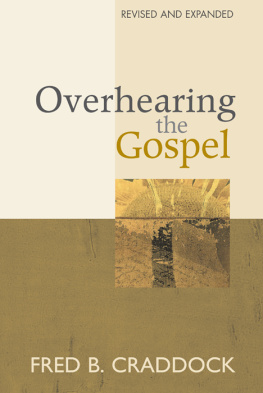

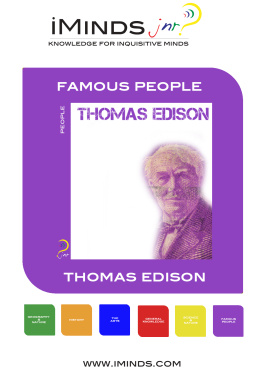
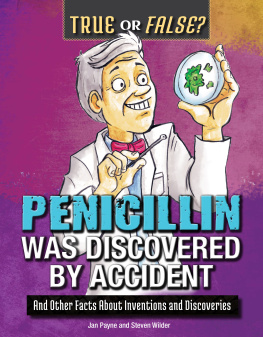
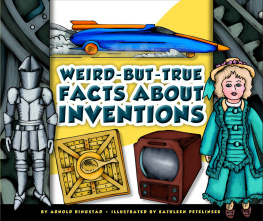
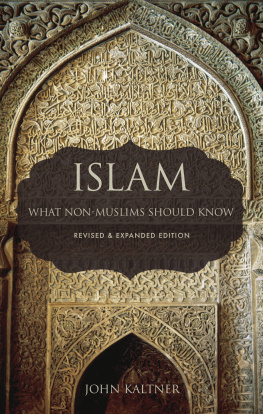

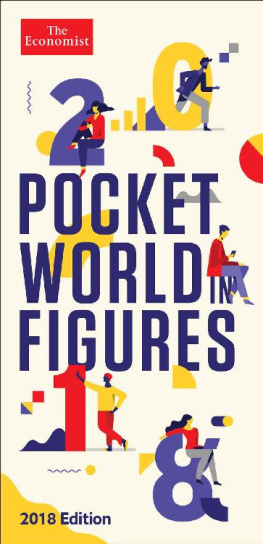

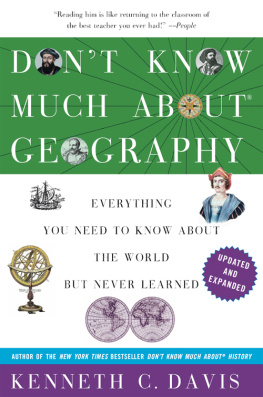


 George Washington started a war and then surrendered.
George Washington started a war and then surrendered.